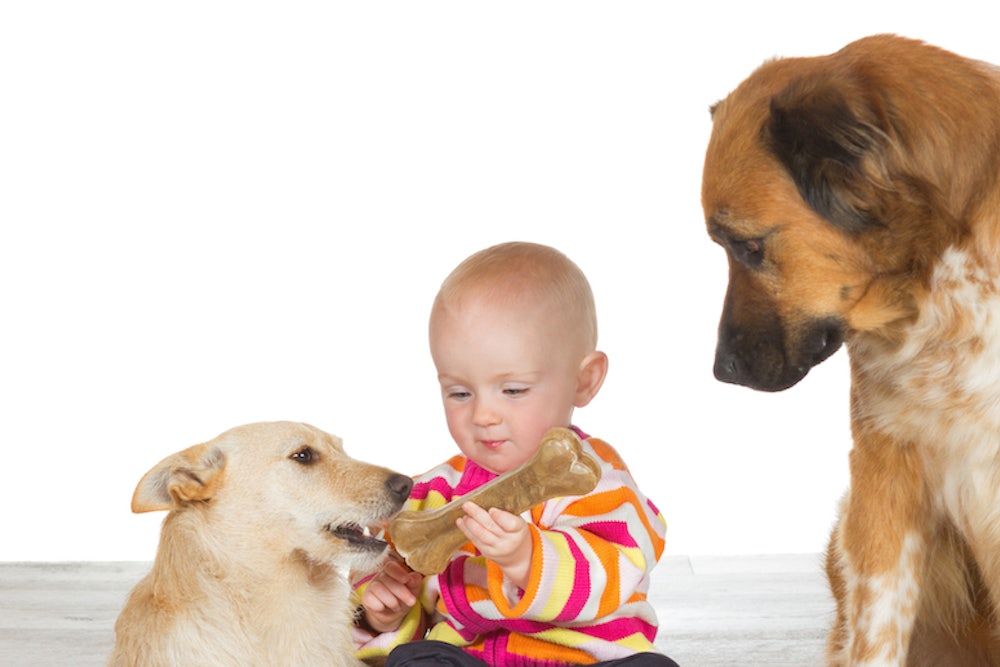Many pet owners believe people should buy puppies in pairs, lest one get lonely. But dividing your attention between two pets could backfire: A new study shows that dogs, just like their human counterparts, get jealous when they feel ignored.
University of California San Diego psychology professor Christine Harris and coauthor Caroline Prouvost designed an experiment to explore whether dogs would get competitive if their owners ignored them in favor of another dog-like object. Harris and her team went to 36 dog owners’ homes and instructed them to interact with a series of three objects in front of their dogs. First, the pet owners were told to ignore their real dog and lavish attention on a stuffed toy dog that had been programmed to bark, move around, and wag its tail. Next, they were instructed to interact with a jack-o-lantern the same way. Finally, they simply read a book out loud while ignoring the dog.
Harris’ team videotaped the interactions, and had independent raters analyze the dogs’ responses for different behaviors. In the first scenario, most of the dogs reacted angrily: 78 percent of them made physical bids for their owners’ attention, touching or pushing them. Thirty percent of the time, the dogs tried to intervene between the stuffed animal and their owner; one quarter of the time, the dogs lashed out at the stuffed animals, snapping or growling at them. In the jack-o-lantern trial, the dogs were less inclined to try to intervene: 42 percent tried to get between their owner and the pumpkin. And the dogs didn’t seem to mind when their owners focused their attention on a book; only 22 percent of the dogs pushed or touched their owner in this trial, and just one dog bothered snapping at the book.
“You might think dogs would respond aggressively whenever they lost their owners’ attention, but it’s losing attention to something that seems like an animate being that provokes them,” explained Harris. “They don't respond the same way across all three conditions.”
Harris, who has been writing on emotion and cognition for years, says the idea for this study occurred to her while playing with a pair of dogs at her parents’ house. “If I was paying attention to one, the other would try and push it out of the way,” she recalled. “They wanted exclusive attention and affection.”
Most of the research on jealousy focuses on humans; one of the big questions is whether it’s a learned or biological behavior. Some studies suggest that babies experience jealousy, but if psychologists can show that dogs do, too, they can “add support to the idea that jealousy is a hard-wired emotion, just like fear or anger,” Harris told me.
“While the origins and possible function of jealousy have been debated, most theorists agree on one defining feature: It requires a social triangle, arising when an interloper threatens an important relationship,” Harris and Prouvost write. It might not matter what species that interloper belongs to.
